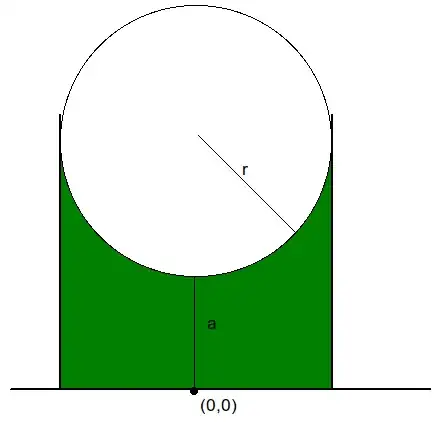OK,
I need the integral of
$$ f(x,y)=e^{-\beta\left(x^{2}+y^{2}\right)} $$
(beta is a constant)
over this green region, where we integrate from the origin outwards.

Any help? I tried in Tricky Gaussian; a good method?, but to no avail.
OK,
I need the integral of
$$ f(x,y)=e^{-\beta\left(x^{2}+y^{2}\right)} $$
(beta is a constant)
over this green region, where we integrate from the origin outwards.

Any help? I tried in Tricky Gaussian; a good method?, but to no avail.
I don't think this can be evaluated explicitly. The integral is easy enough to set up:
$$\int_{-r}^r dx \, e^{-\beta x^2} \, \int_0^{a+r-\sqrt{r^2-x^2}} dy \, e^{-\beta y^2}$$
which may be expressed as a single integral:
$$\frac12 \sqrt{\frac{\pi}{\beta}} \int_{-r}^r dx \, e^{-\beta x^2} \operatorname*{erf}{\left [ \sqrt{\beta} \left ( a+r-\sqrt{r^2-x^2}\right )\right ]}$$
You can do a sub $x=r \cos{\theta}$, but it is unclear to me how this results in anything more useful.